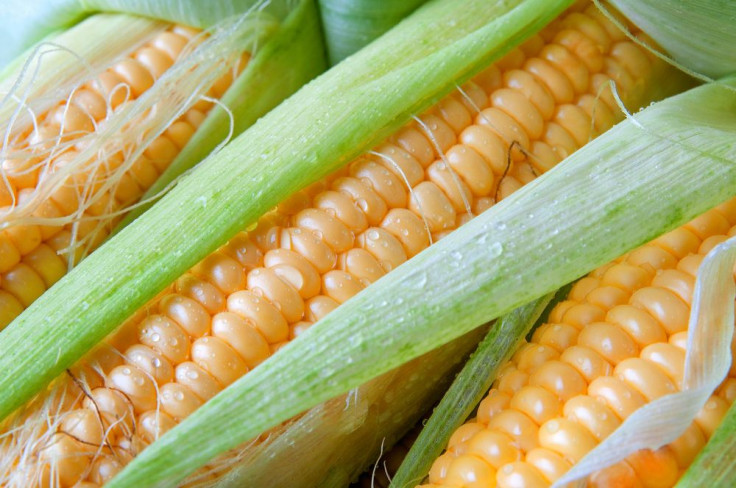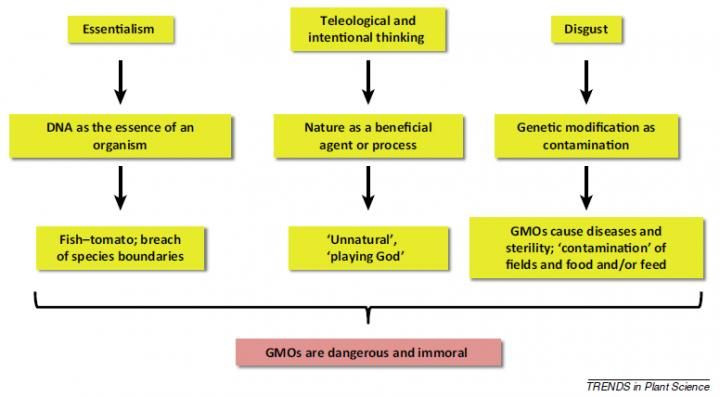Why People Say No To GMO: Popular Psychology And Ethics, Not Science, Spur Dislike

Despite the fact that many people do not even know what GMO stands for, never mind what the products do, the idea of GMOs is often met with vehement disapproval. A team of Belgian philosophers set out to understand why this was and theorized that, for many, opposition to GMOs lies not in actual science but rather human instinct.
There are people who have thoroughly researched GMOs (genetically modified organisms), weighed both the pros and the cons of the situation, and come to the conclusion that they would rather not include GMO food products in their diet. This is not about those people. Rather, let's address the individuals who haven’t the slightest clue what GMOs are, other than “Frankenstein food,” but still insist on flooding your Facebook feed with articles in favor of banning them.
According to a study now published in Trends in Plant Science, the widespread opposition to GMOs can be explained by underlying cognitive processes shared by all humans. Anti-GMO campaigns tap into human emotions such as morality and disgust, and unfortunately, once tapped, these emotions are extremely difficult to counter. The situation is even more difficult to counteract because the actual science of GMOs is both complex to communicate and difficult for the general public to understand.
"Anti-GMO arguments tap into our intuitions that all organisms have an unobservable immutable core, an essence, and that things in the natural world exist or happen for a purpose," Stefaan Blancke, a researcher involved in the project explained, according to the press release.
Religious beliefs, such as GMOs “playing God” by manipulating nature, also play a hand in the widespread GMO opposition, but there is more to the story.
"For a very long time people have only been hearing one side," Blancke said, explaining that because scientists aren’t usually involved in public discussion on GMOs, those against the anti-GMOs campaign have been able to function without opposition.

What Are GMOs?
According to the World Health Organization, GMOs are defined as plants, animals, or microorganisms that have genetic material which has been altered in a way that does not occur naturally. Many times individual genes are transferred from one organism to another in order to get the desired traits.
Crop protection is one of the biggest reasons for developing GMOs. Increasing food demands have put a strain on agriculture systems. Many GMO plants are given a protection to certain diseases or insects, which inevitably allows farmers to have more successful harvests.
By making the farming process easier, GMOs help the population feed, and also keep the price of moderate luxuries, such as coffee and wine, affordable. For other crops, such as cocoa beans, GMOs may make the difference between existence and extinction. The cocoa bean is currently facing a serious worldwide shortage, thanks to increased demand, temperature change, and plant fungi. As reported by Medical Daily, in this situation the introduction of GMO cocoa beans, which are resistant to fungus, may help keep this crop alive.
On the other hand, GMOs have only really been around since the 1990s, and the long-term effects of consuming GMO products are unknown. Although all GMO products on the market have been approved by national legislature and all evidence suggests that GMOs are safe for human consumption, in reality gene editing is new territory for researchers.
There are two sides to the GMO story, and while the researchers involved in the study aren’t looking to actively change the public’s attitude, they do hope consumers review all the available information before making their decision on whether or not they choose to eat GMO foods.
"We want to bring the two sides more together," Blancke concluded. "You cannot say every GMO is bad. You have to look at each case separately to make a judgement."
Source: Blancke S, Van Breusegem F, De Jaeger G, Braeckman J, Van Montagu M. Fatal attraction: the intuitive appeal of GMO opposition. Trends in Plant Science. 2015.
Published by Medicaldaily.com



























